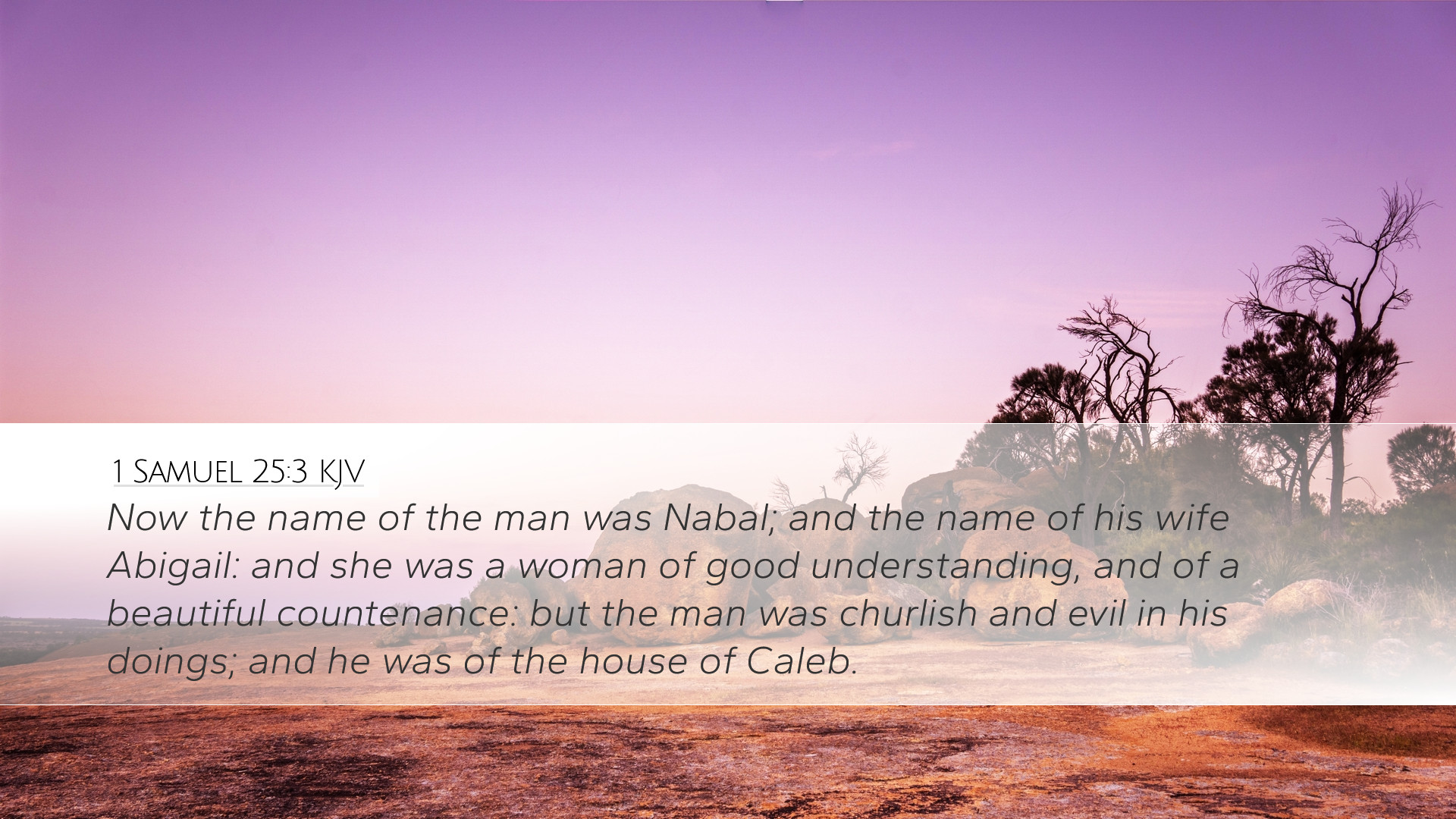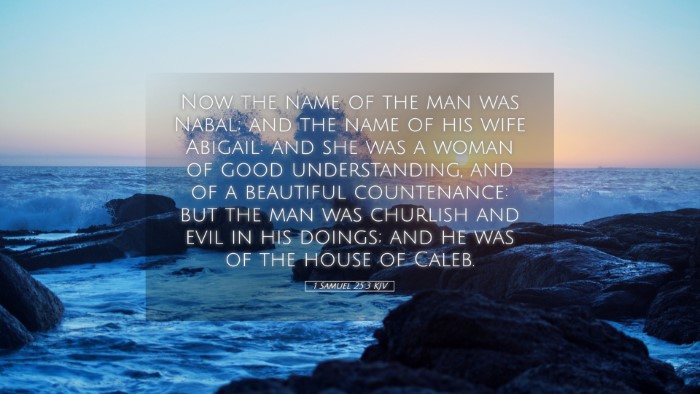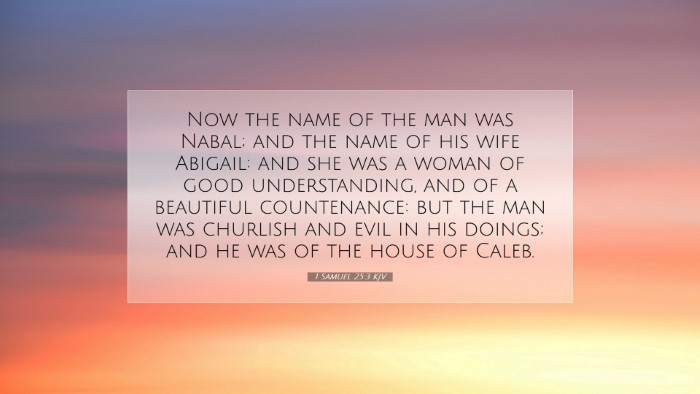Commentary on 1 Samuel 25:3
Verse Text: "Now the name of the man was Nabal; and the name of his wife Abigail. And she was a woman of good understanding, and of a beautiful countenance: but the man was churlish and evil in his doings; and he was of the house of Caleb."
Introduction
This verse introduces us to two significant characters in the narrative: Nabal and Abigail. The contrast between these two individuals sets the stage for the events that will unfold in the chapter, showcasing themes of wisdom, folly, and divine providence. The commentary presented below brings together insights from notable public domain commentators, including Matthew Henry, Albert Barnes, and Adam Clarke.
Character Analysis
Nabal
Nabal is described as a man of ill-repute, characterized by the terms "churlish and evil in his doings."
His name, which means “fool,” is emblematic of his nature. Matthew Henry remarks that Nabal’s behavior exemplifies "the folly of riches," cautioning that wealth can lead individuals to arrogance and a lack of regard for others. His evil actions are linked to a disposition that lacks generosity, demonstrated when he refuses to provide assistance to David and his men.
Abigail
In stark contrast, Abigail is depicted as a "woman of good understanding" and beauty. Albert Barnes emphasizes her wisdom, noting that her actions later in the narrative demonstrate not just intelligence but also an astute moral compass. Clarke complements this by suggesting that Abigail represents the ideal of piety and virtue in the midst of tumultuous circumstances. Her character foreshadows the intervention that will balance Nabal’s folly.
Societal Context
The mention of Nabal being "of the house of Caleb" carries historical weight, as Caleb was one of the faithful men who entered the Promised Land. This lineage indicates that Nabal's heritage had great potential, yet he squandered it, highlighting the moral decline that can occur irrespective of one's background. Matthew Henry expounds on this to remind readers that virtuous heritage does not guarantee virtuous behavior.
Thematic Insights
Several pivotal themes emerge from this passage. They include:
- The Contrast of Wisdom and Folly: Abigail’s wisdom is juxtaposed against Nabal’s foolishness. Clarke poses the question of how wisdom can be overshadowed by folly, challenging leaders to cultivate discernment in their choices.
- The Role of Women in Scripture: Abigail’s portrayal illustrates the impact a righteous woman can have within a family and community. Barnes highlights that her actions are not merely reactive but strategic, showcasing female agency in Biblical narratives.
- Divine Providence: The unfolding events of this chapter reflect God’s sovereignty over human actions. Henry notes that circumstances may seem dire due to Nabal's actions, but Providence orchestrates circumstances toward a righteous outcome.
Practical Applications
For pastors, students, and theologians, this commentary provides a rich tapestry of insights that can inform preaching and personal reflection. The lessons of contrast between Nabal and Abigail can be applied in several ways:
- Leadership Qualities: The understanding that wise leaders must possess not only knowledge but also moral integrity and compassion.
- The Impact of Relationships: Highlighting the importance of choosing friends and partners with discerning character, as seen in the dynamic between Nabal and Abigail.
- Trust in Divine Intervention: Encouraging trust in God's timing and ability to turn situations for good, even when faced with adversity.
Conclusion
1 Samuel 25:3 serves as a microcosm of the larger narrative concerning David's rise and the complexities of human character. The characters of Nabal and Abigail offer a thought-provoking exploration into the nature of wisdom, folly, and the unfolding of God’s plans amidst humanity's decisions. By studying this verse, one gains valuable insights applicable to personal life, ministry, and broader theological discourse.


